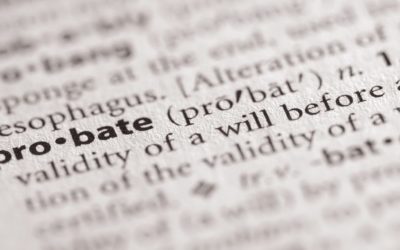When Can an Estate Be Distributed to Heirs?
If you stand to inherit money or property after the death of a loved one, you might wonder how soon you can expect to receive your inheritance. Typically, the estate distribution of assets is one of the last steps the estate’s personal representative will take when administering the estate. Depending on the complexity of the estate and its assets, this means heirs could be waiting a while to receive their inheritance.
Here are some of the steps the personal representative must take before distributing assets.
Taking Inventory
Before the personal representative can do anything else with the estate assets, they must have a clear picture of what exactly the deceased owned. Estate planning documents can be helpful in locating at least the most valuable assets. Beyond the obvious real estate and physical property, this could include retirement accounts, life insurance policies, deeds, brokerage statements, bank accounts and stock and bond certificates.
The personal representative will also need to find information about the debts owed by the deceased, as most of these debts will need to be paid out of estate assets.
Valuing Assets
Once there is a complete asset inventory, the next step is for the personal representative to have those assets appraised and valuated, as necessary. Any capital gains taxes are calculated using the value of the assets at the date of death rather than the date of purchase, so it is important to have this information to avoid or minimize potential capital gains taxes. The value also determines whether the estate is liable for estate taxes after outstanding debts are accounted for.
Paying off Debts and Liabilities
Before any assets can be distributed to heirs, the estate personal representative must pay off any of the decedent’s outstanding bills, debts, and taxes. Creditors have a limited amount of time to make any claims on the estate after they have been alerted to the death of the decedent. The personal representative then has a certain amount of time to determine the validity of those claims.
Estate Distribution of Assets
Finally, after all debts, liabilities and taxes have been taken care of, the personal representative can then distribute the remaining estate assets in accordance with the decedent’s wishes as laid out in their estate plan. This is always the last step in administering an estate because a failure to pay off bills and taxes can result in the personal representative or trustee being held personally liable for that money.
More often or not, it could take a year or longer for beneficiaries to receive an inheritance.
Next Steps
For more information about how long it will take to probate an estate and for heirs to get their inheritance, contact an experienced probate and estate planning lawyer at Baker Law Group, P.C.
We offer an initial complimentary consultation.
To schedule a consultation:
781-996-5656 Call
info@MBakerLaw.com Email




